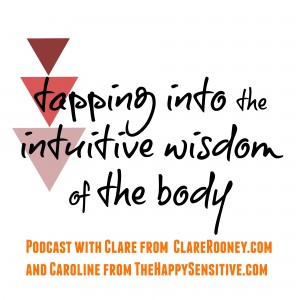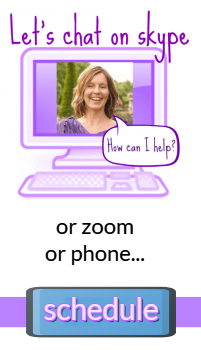 The world of movement and exercise can be an odd one. “Personal Training” often brings to mind a world of body building, instructors yelling at you to do more push-ups and other “fun stuff” like that, ahem.
The world of movement and exercise can be an odd one. “Personal Training” often brings to mind a world of body building, instructors yelling at you to do more push-ups and other “fun stuff” like that, ahem.
Yet for us Highly Sensitive People, the right movement can empower us. Exercise not only makes us physically stronger and healthy, it also helps us access our intuition.
There is an old paradigm of spirituality that is about “getting out and away from” the body. For a long time, in many traditions, our body was seen as an “impediment” to spirituality and intuitive truth.
The problem with that is that it ignores all the intuition and wisdom that is only available and accessible when we are actually strongly grounded in our body. Your body is trying to communicate with you, but you can’t hear it if you’re not home! (home as in: “in” your body)
In this podcast I chat with movement expert, personal trainer and empath, Clare Rooney from ClareRooney.com.

Clare is passionate about helping people better understand their body through exercise, and she creates tailored workouts for people based on their individual strengths and weaknesses. She is an expert at decoding what your body is trying to tell you about how it wants and needs to move in order to feel good.
In this information-packed podcast we talk about:
-
- How exercise can pull you back into your body as a sensitive person and why this matters for your stress-levels and intuitive knowing.
- The problem with old-fashioned yoga practices like lotus posture.
- Clare shares about her empath experiences of leaving her body during a running practice, and realising that running wasn’t the right practice for her, and why.
- We talk about exercising with adrenal fatigue (Clare and I have both experienced adrenal fatigue)
- Why Highly Senstive People need exercise instruction in more detail.
- We discuss that tricky distinction between “taking it slow” versus avoiding necessary work, and the importance of finding a teacher who can support you in walking that fine balance of not overdoing it but also not avoiding the work.
- Clare explains that our bodies are more flexible and adjustable than we assume. We talk about the impact of energy on our body and it’s “fixed” positions.
Clare also introduces important “technical” aspects of movement:
- We talk about artistic, free-flowing, regenerative movement versus highly structured strength-building movement and that all people need both, but tend to prefer one.
- Clare explains that you can get yourself biomechanically checked to evaluate your strengths and weaknesses and see which exercise would benefit you most.
- We talk about how the sideplane of motion is often ignored in exercise but this sideplane is crucial for integrating our masculine and feminine energies.
- Clare gives examples of how things happening in your body aren’t “just” about your body. The legs for example are a metaphor for so many things: standing on your own two feet, putting your best foot forward… doing the legwork and getting a leg up.
Listen to the podcast below:
Introducing Pilates
In the podcast Clare and I also talk about Pilates and how this exercise system is different from other kinds of movement. There is a mindfulness that naturally comes with learning Pilates. It helps refine movement, thereby balancing your body and brain. We also talked about the importance of getting a movement teacher who is both certified and qualified. It’s easy to get certified, being qualified is much harder!
Clare has an online Pilates Course for Beginners. Personally, I find her style and detailed instructions very helpful (I always get frustrated and stuck when someone can’t give me the fine details of how to do something. Since I notice so many subtleties, I get overwhelmed when someone doesn’t address those things and doesn’t explain to me what to do with it all.)
You can try Clare’s Pilates below:
You can also do your own mini “biochemical assessment” to see how your body is faring:





















Comments on this entry are closed.